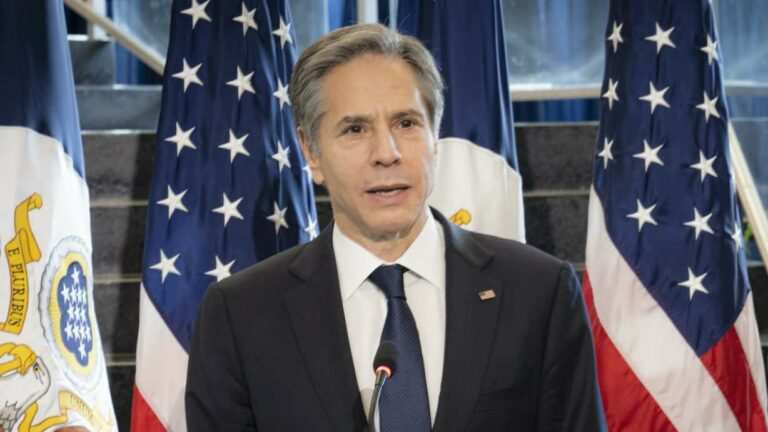
This article was originally published by Radio Free Europe/Radio Liberty and is reprinted with permission.
The United States has warned of “consequences” if Russia “acts recklessly or aggressively” toward Ukraine amid concerns over Moscow’s troop buildup near Ukraine’s borders.
“President Biden’s been very clear about this,” Secretary of State Antony Blinken told NBC’s Meet The Press on April 11. “If Russia acts recklessly, or aggressively, there will be costs, there will be consequences.”
Fighting has escalated between Ukrainian government troops and pro-Russian separatists in the country’s east in recent weeks, with evidence of Russia moving troops toward or near Ukraine’s borders and into Russian-occupied Crimea.
The Kremlin has rejected Western calls to pull back its troops, denying they are a threat while adding that military movements within Russia are a sovereign, internal issue.
Kremlin spokesman Dmitry Peskov on April 11 said that “nobody is planning to move toward war,” but added that Moscow “will not remain indifferent” to the fate of Russian speakers who live in eastern Ukraine.
Earlier on April 11, British Foreign Secretary Dominic Raab said London and Washington “firmly oppose Russia’s campaign to destabilize Ukraine” and call on Russia to de-escalate the situation.
Blinken “& I agreed Russia must immediately de-escalate the situation & live up to the international commitments that it signed up to at @OSCE,” Raab said on Twitter, referring tothe Organization for Security and Cooperation in Europe.
The statement by Raab comes a day after Ukrainian President Volodymyr Zelenskiy briefed Turkish President Recep Tayyip Erdogan on the situation.
After their talks in Istanbul, Erdogan called recent developments “worrying” and said he hoped the conflict would be resolved peacefully through dialogue and in line with Ukraine’s territorial integrity.
“We believe that the current crisis can be solved with peaceful and diplomatic means on the basis of the integrity of Ukraine and international law,” Erdogan said.
During their meeting, the presidents also discussed expanding defense cooperation between their countries. Zelenskiy said the stepped-up cooperation would apply especially to weaponry and the construction of fighter jets.
Zelenskiy, who visited Ukrainians troops in the Donbas region on April 8, said Kyiv and Ankara shared the same view on threats in the Black Sea region and the response to those threats.
Blinken consulted the German and French foreign ministers on April 9 about the need for Russia to cease its military buildup on the occupied Crimean Peninsula and near Ukraine’s eastern borders.
Russia annexed Crimea in March 2014, sending in troops and staging a referendum denounced as illegitimate by at least 100 countries.
Since then, overwhelming evidence suggests Russia has continued to lend diplomatic and military aid to armed separatists fighting in the Donbas region.
The conflict has killed more than 13,000 people and displaced more than 1 million since April 2014.
0 comments :
Post a Comment